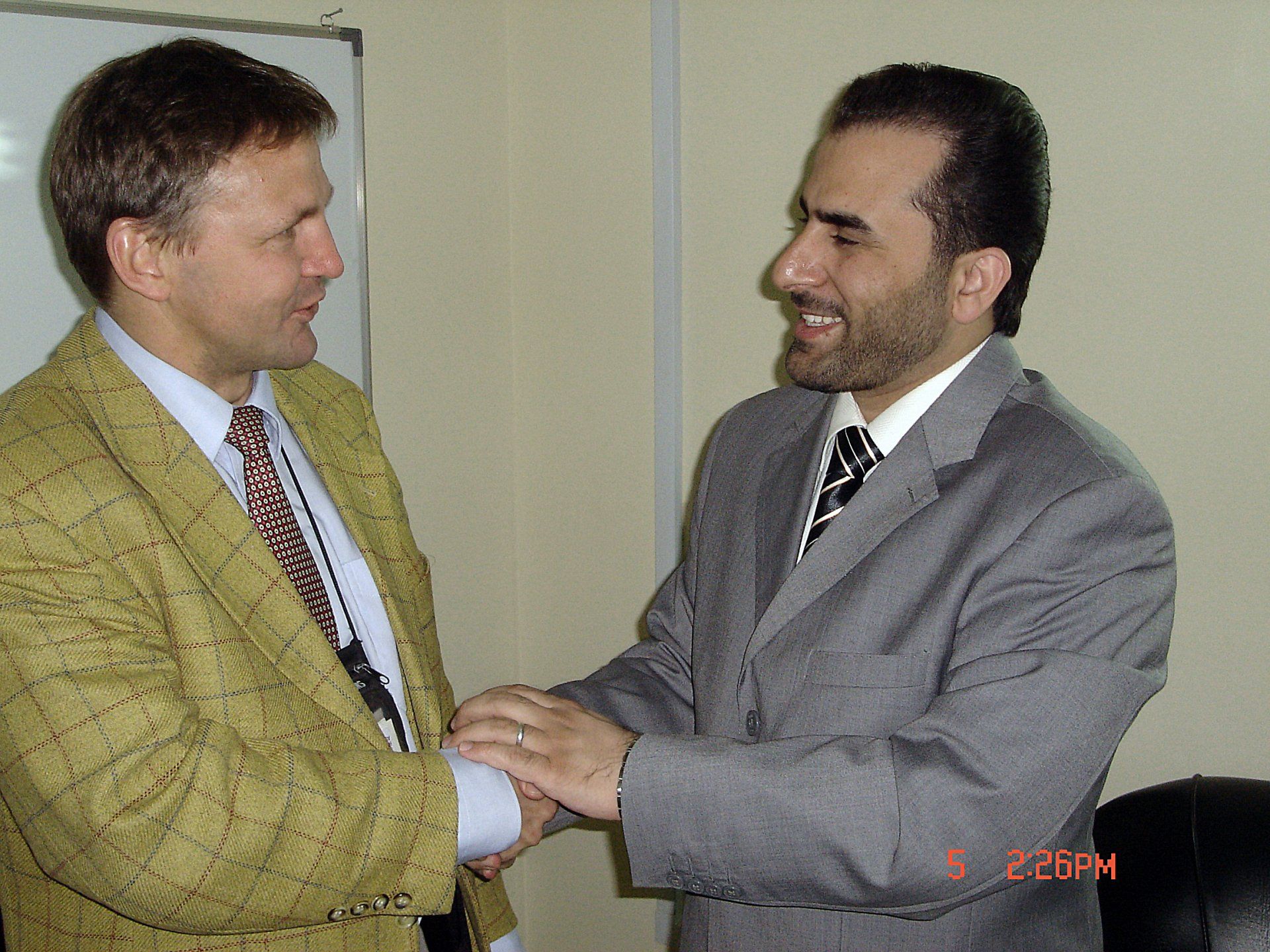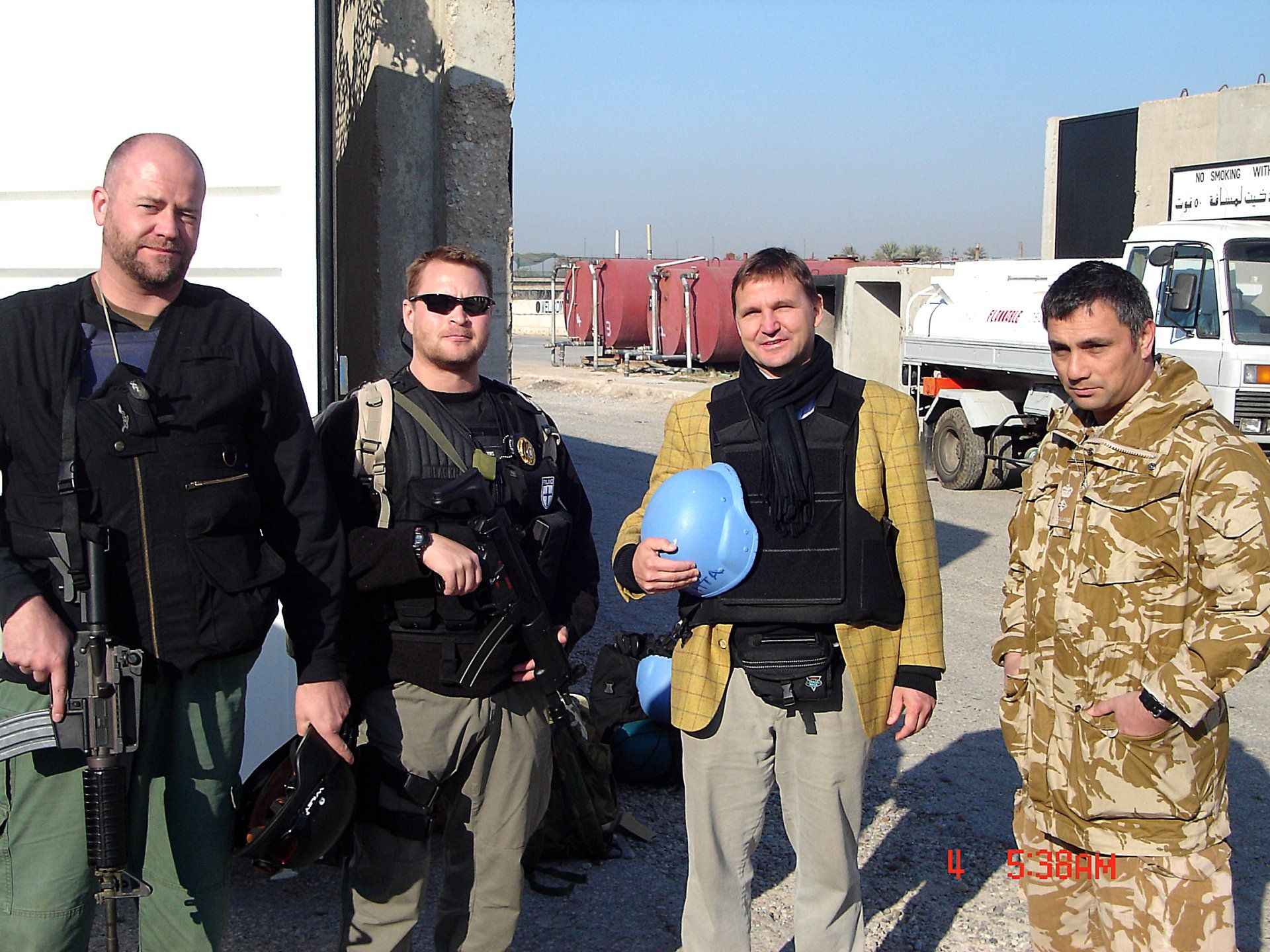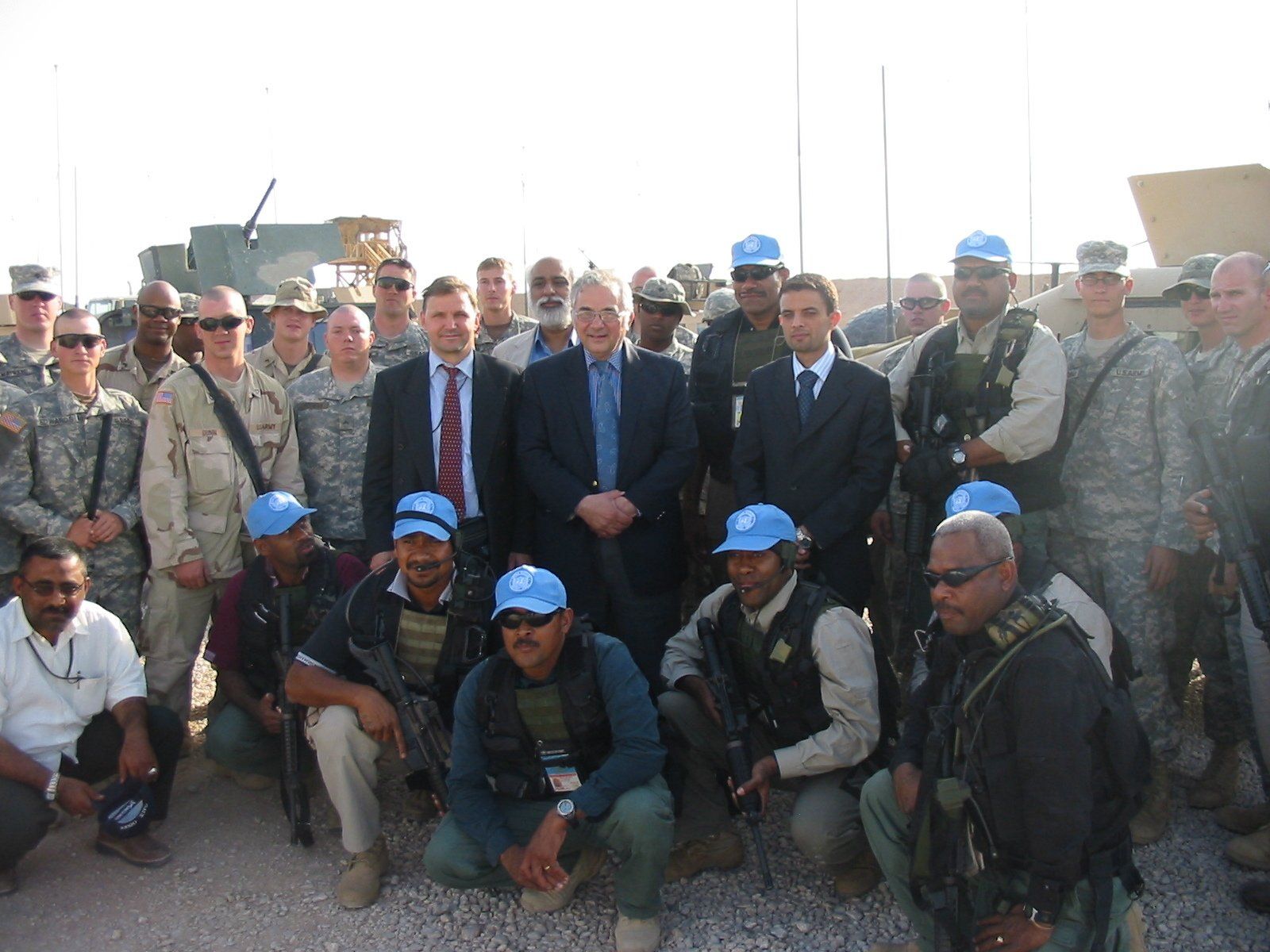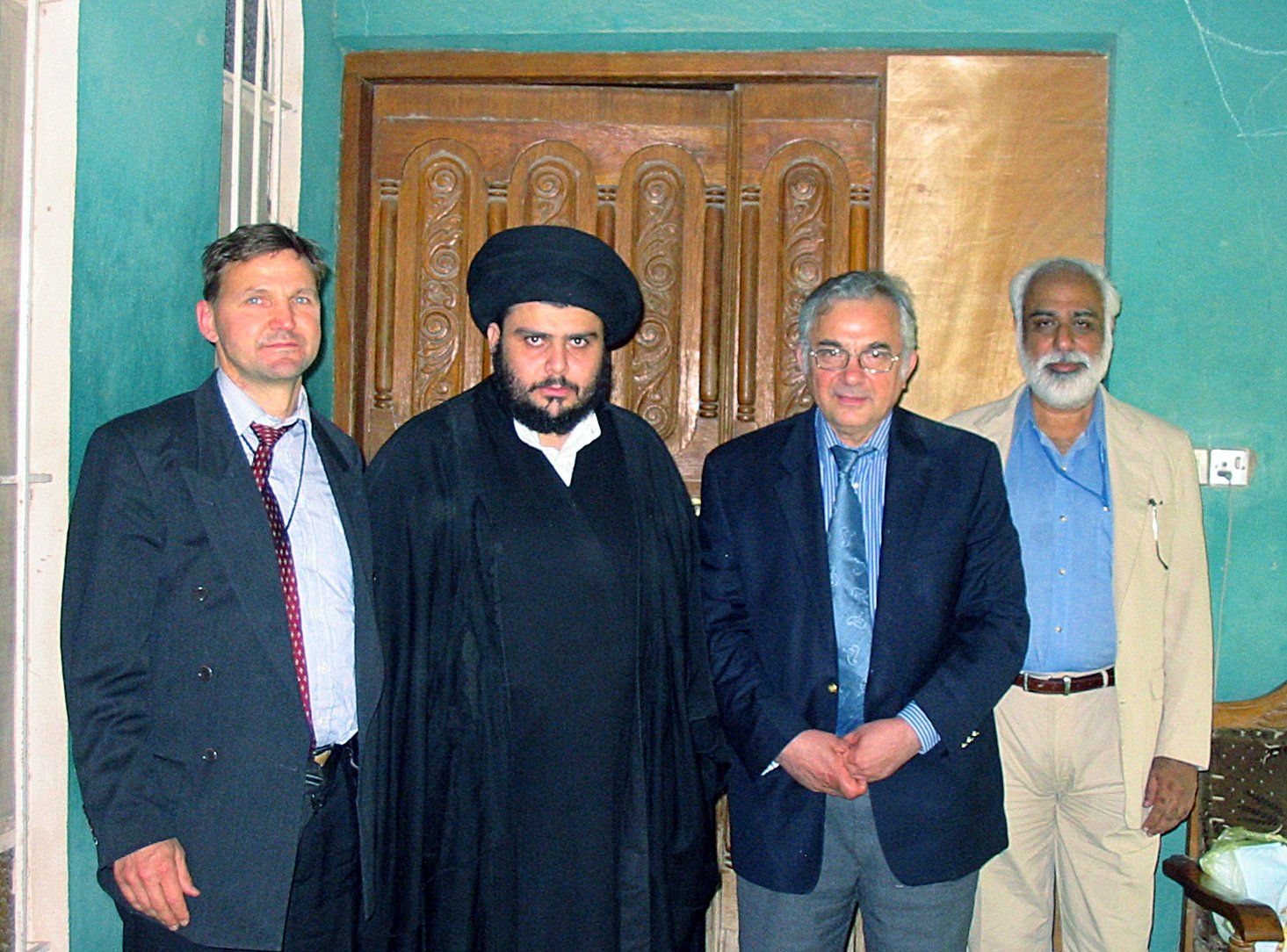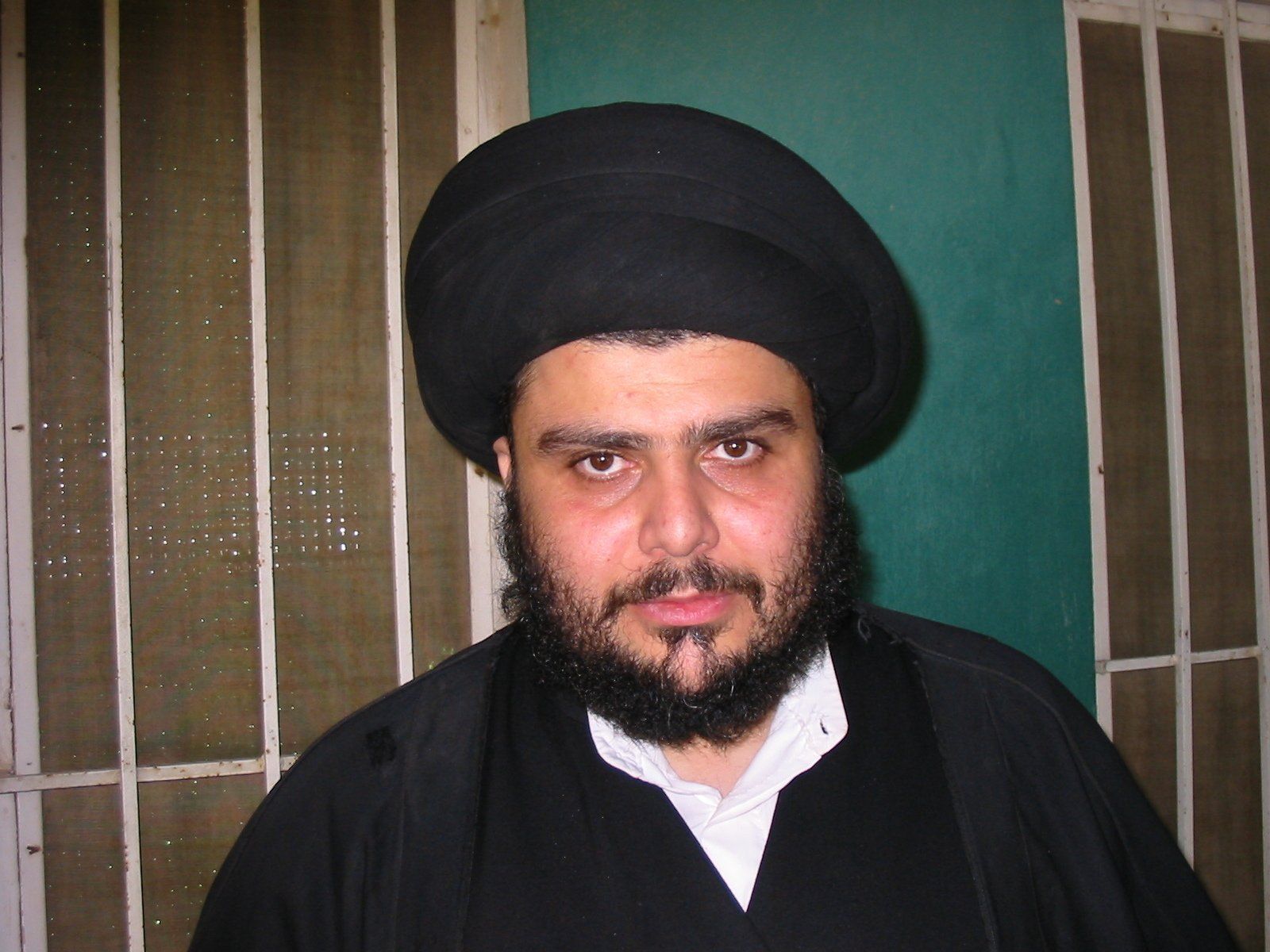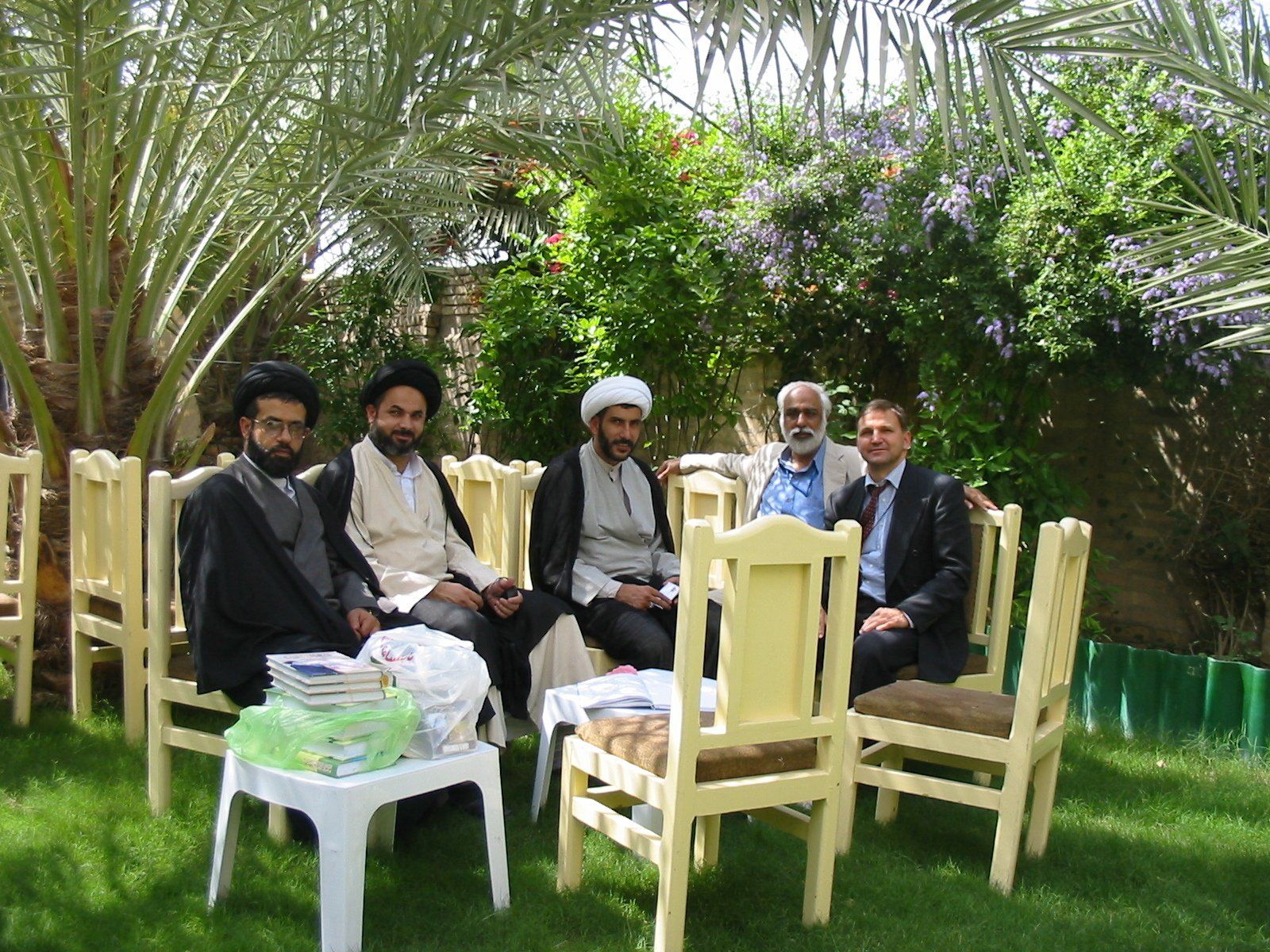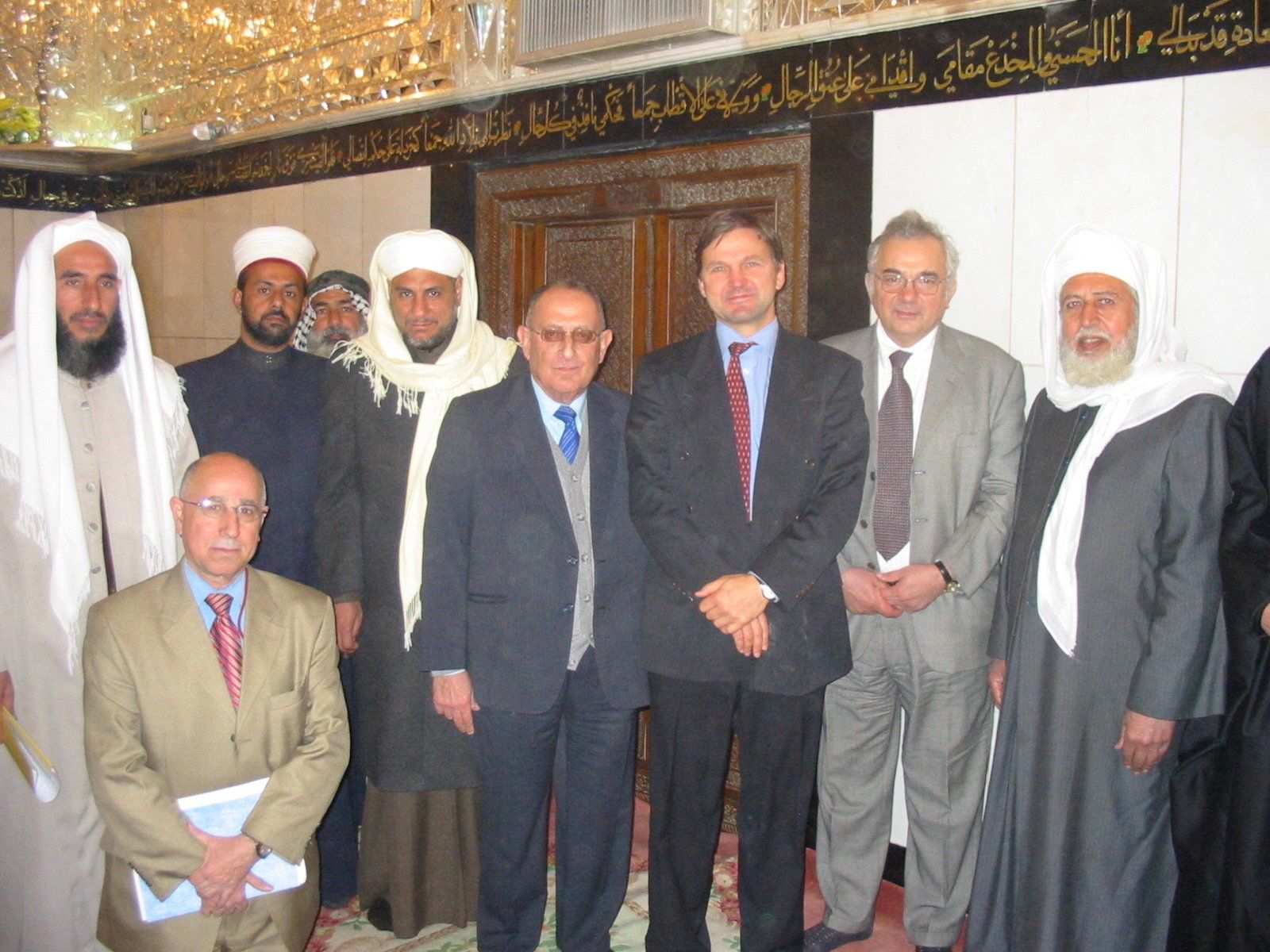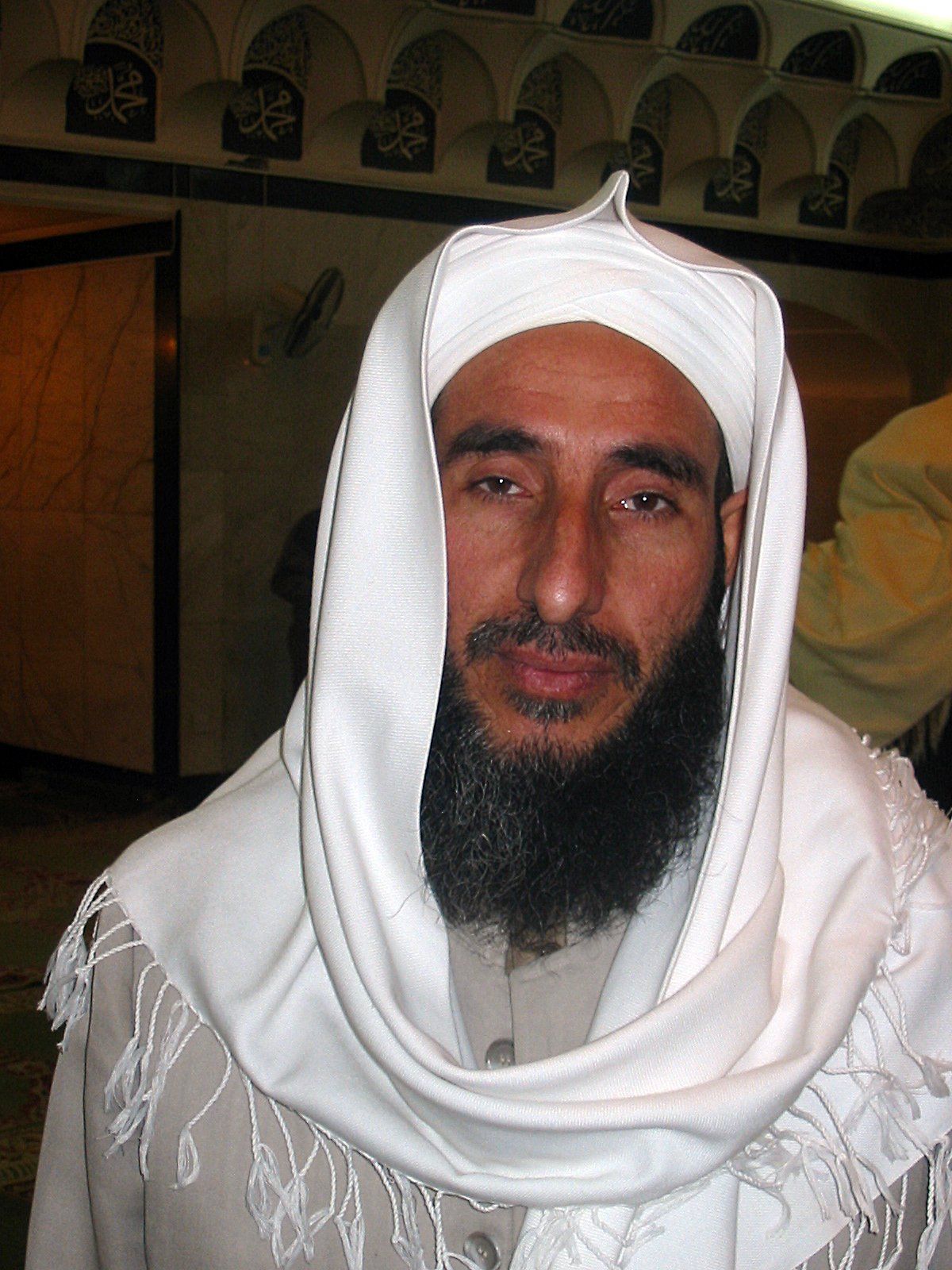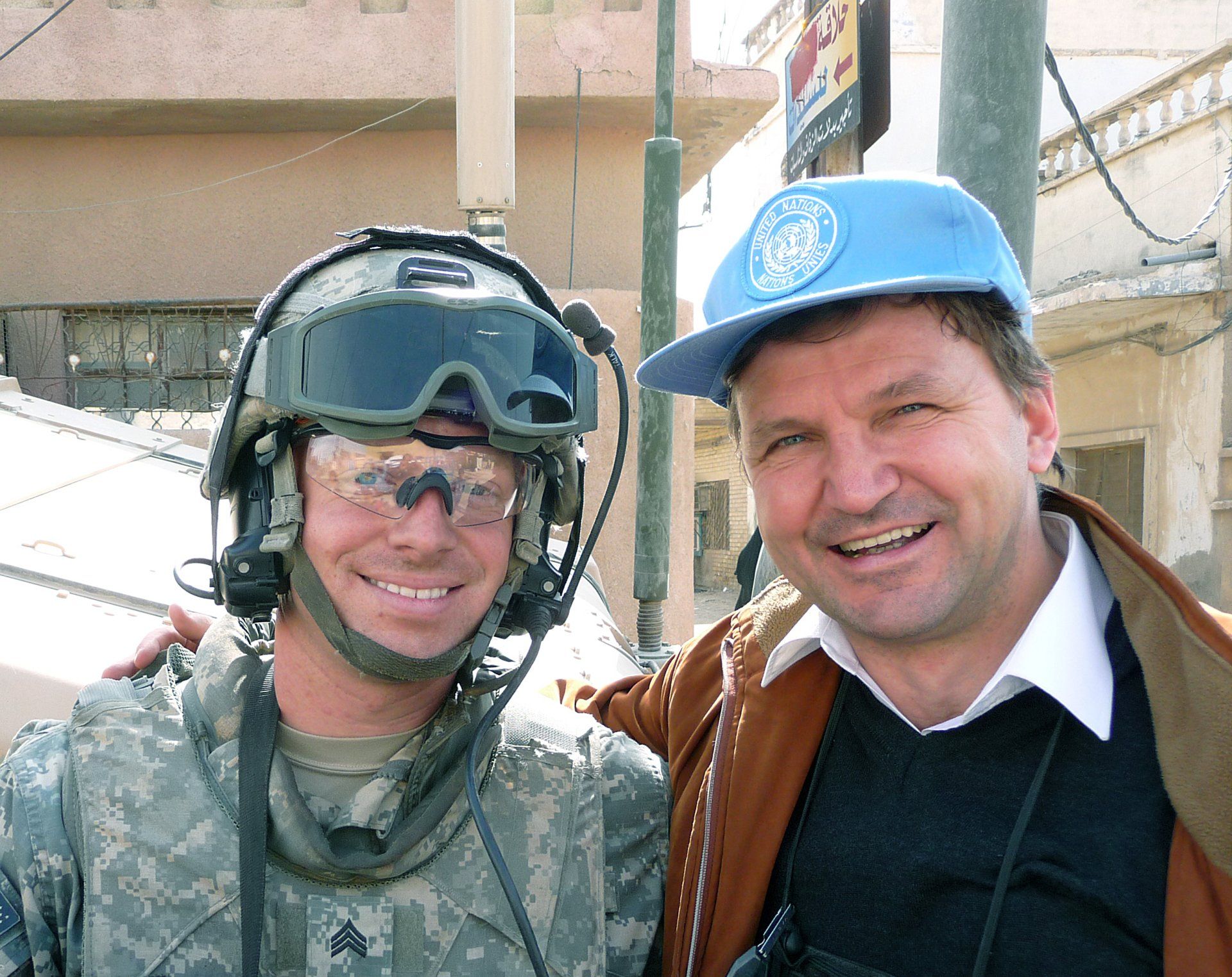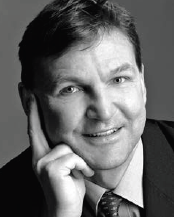Impression from Iraq
Fact-Finding-Mission In South Iraq
In December 2006 Wilfried Buchta was sent out to the provinces Hilla and Najaf in sourthern Iraq to conduct a one-week fact-finding-mission.
The goal was to speak to the respective governors and determine the best approach for UN aid agencies to provide more effective support to local authorities. Here Buchta is talking to the provincial governor of Hilla.
No Safety Without Bodyguards
Southern Iraq/Najaf, December 2006
Wilfried Buchta on his fact-finding-mission in Hilla/Najaf together with his bodyguards. Without their protection missions of this kind would have been absolute suicide. But still, there was no guarantee for his safety since the remaining risk was still considerable.
Conversation with the Governor of Najaf
South Iraq/Najaf, December 2006
Wilfried Buchta during a friendly conversation with Abu Gilal, the provincial governor of Najaf.
The city with the same name, Najaf, is also the place where Hussein-Ali Sistani, the highest Shiite Grand Ayatollah, resides and where the gravesite of the first Imam of the Shia, Imam Ali, is located at. Imam Ali is worshipped by all Shiites many of whom make a pilgrimage to his tomb, seeking his grace and interceding with God on their behalf in their after-life.
Final Photo Before the Return to Baghdad
South Iraq/Najaf, December 2006
Before his departure one more final photo for his Iraqi conversational partners in Najaf. Wilfried Buchta poses with the cannoneer of the US helicopter that is about to take him back to Baghdad shortly afterwards.
Negotiations of Great Delicacy.
April 2006
On a FOB (Forward Operation Base) of the US armed forces on the desert edge of the city of Najaf, the theological center of Iraq. UNAMI Delegation Leader Ashraf Qazi and Buchta on a negotiation mission, surrounded by bodyguards from the UN-Fiji-regiment and US soldiers. The main goal of the mission is to convince Muqtada al-Sadr, the anti-US leader of the Shiite nationalist Sadr movement, of the usefulness of political moderation.
A Silver-Tongued UN-Diplomat Meets with Iraq's Notorious Fire-Brand.
April 2006
Group photo at the end negotiations (from left to right): Wilfried Buchta, Muqtada al-Sadr, UNAMI Director Ashraf Qazi and Dr. Kishore Mandhyan, the Indian director of UNAMI's Political Affairs Office in Baghdad.
Portray of a Shiite-Nationalist Die-Hard.
April 2006
Portrait photo of Muqtada al-Sadr. The Sadr movement he leads has 2 million Shiite followers in the slums of large cities, particularly Baghdad. Sadr's orders are followed by 60,000 fighters from the Mahdi Army, a militant and heavily armed militia that was responsible for the murder of numerous Sunni militia members and civilians in the Sunni-Shiite civil war from 2006-2008.
A Peaceful and Friendly Talk in the Garden.
April 2006
The negotiations ended with a relaxed group discussion with the closest political advisors to Muqtada al-Sadr in the garden of his house. Participants (from right to left): Buchta, Kishore Mandyan, Salah al-Ubaydi, director of al-Sadr’s PR department, Riyadh al-Nuri, brother-in-law of al-Sadr, and Mustafa al-Yaqubi, political advisor to al-Sadr. Important to know: Six months later, Riyadh al-Nuri was shot to death by renegades of the Mahdi Army. A warning to al-Sadr by Iran's foreign intelligence service, that getting too close to the USA can have fatal consequences.
Meeting Iraq's Sunni Mufti.
Baghdad, May 2006
With UNAMI Director Ashraf Qazi on a mediation mission in Rusafa on the east bank of the Tigris, in the middle of the Red Zone of Baghdad. The meeting took place at the mausoleum of Abdul-Qadir Gilani, an Islamic religious complex dedicated to Abdul Qadir Gilani, the founder of the Qadiriyya Sufi order, in Baghdad. The tomb of Gilani, who is also admired by many Arab, Kurdish and Indo-Pakistani Sunnis, is also the seat of the Mufti Board of Administration of the Sunni Arabs of Iraq. Taking part in the mediation are the Sunni Mufti of Iraq, Sheikh Hassan Dabban (first from right), and several representatives of Sunni Sufi brotherhoods. Important to know: The person on the far left in the picture is Mustansir al-Janabi, a Sunni parliamentarian and representative of a Sufi order who has a big influence as well as supporters in the western Iraqi province of Anbar.
A Wolf in Sheep's Clothing.
May 2006, Baghdad/Red Zone at the Sunni Gilani Shrine.
The Sunni Parliament member al-Janabi had reached country-wide recognition as a fierce critic of the new, US-backed political order in 2005. In his opinion the order was flawed, because it no longer supported the former dominance of the Sunni minority. Based on free democratic elections it had been replaced by Shiite domination, due to Shiites making up the majority of the population. Therefore, him and other Sunnis felt discriminated against and refused to put up with it. Only a few weeks after this picture was taken, he joined Al-Qaida in Iraq, the predecessor of ISIS and fought with violence against the USA and the new Shiite government.
On an Election Monitoring Mission in Basra
Basra in Southern Iraq, March 2010.
As one of many UNO pole watchers I was sent to Basra for a week in order to make sure, that the Parliament elections were conducted correctly. The second-largest city in Iraq with roughly 2 million residents wasn’t just a political hotspot, but also a stomping ground of terror groups, corrupt local politicians and police units, as well as crime syndicates, that were involved in kidnappings and oil smuggling. Without the protection of the US-troops, election monitoring missions would have been simply impossible. Here I am pictured with a cannoneer of an armored personnel carrier, that was taking me to the different polling places.
Quick Break Before the Drive to More Polling Places in Basra
Basra in South Iraq, March 2010
Here the GI’s that were guarding my armored personnel carrier convoy on a break at the US Military base at the edge of Basra. Shortly after they are bringing me to a number of additional polling places.


